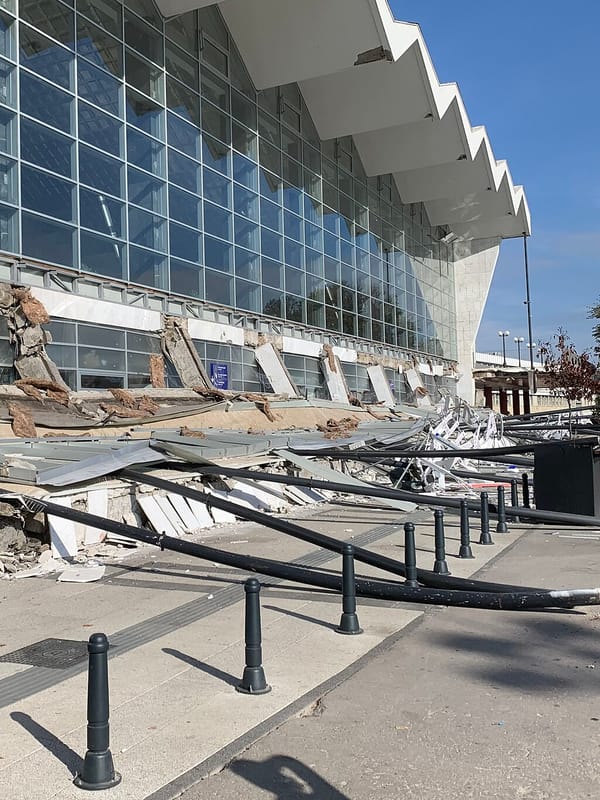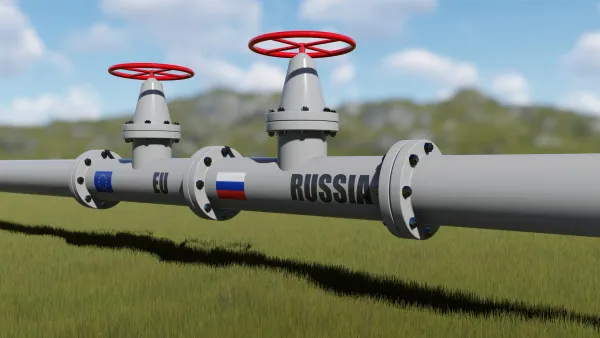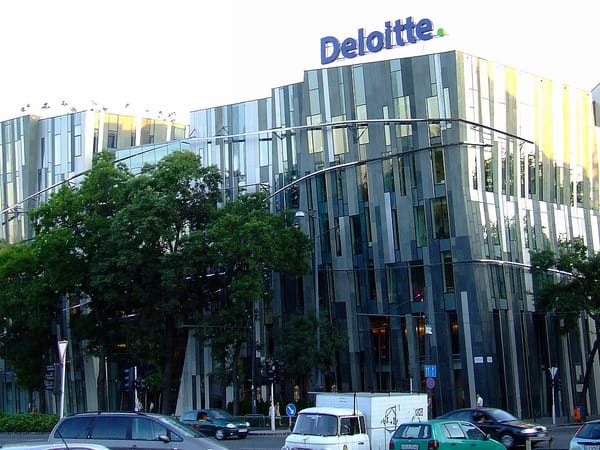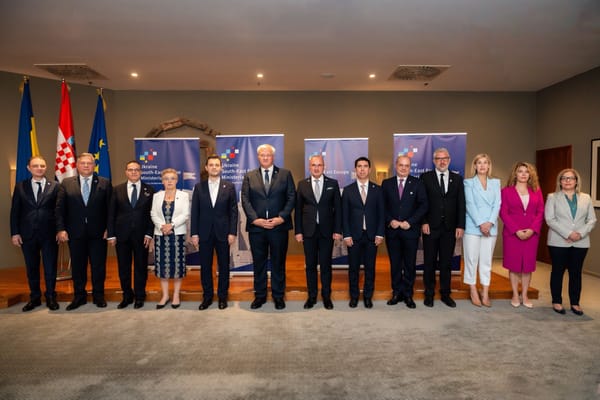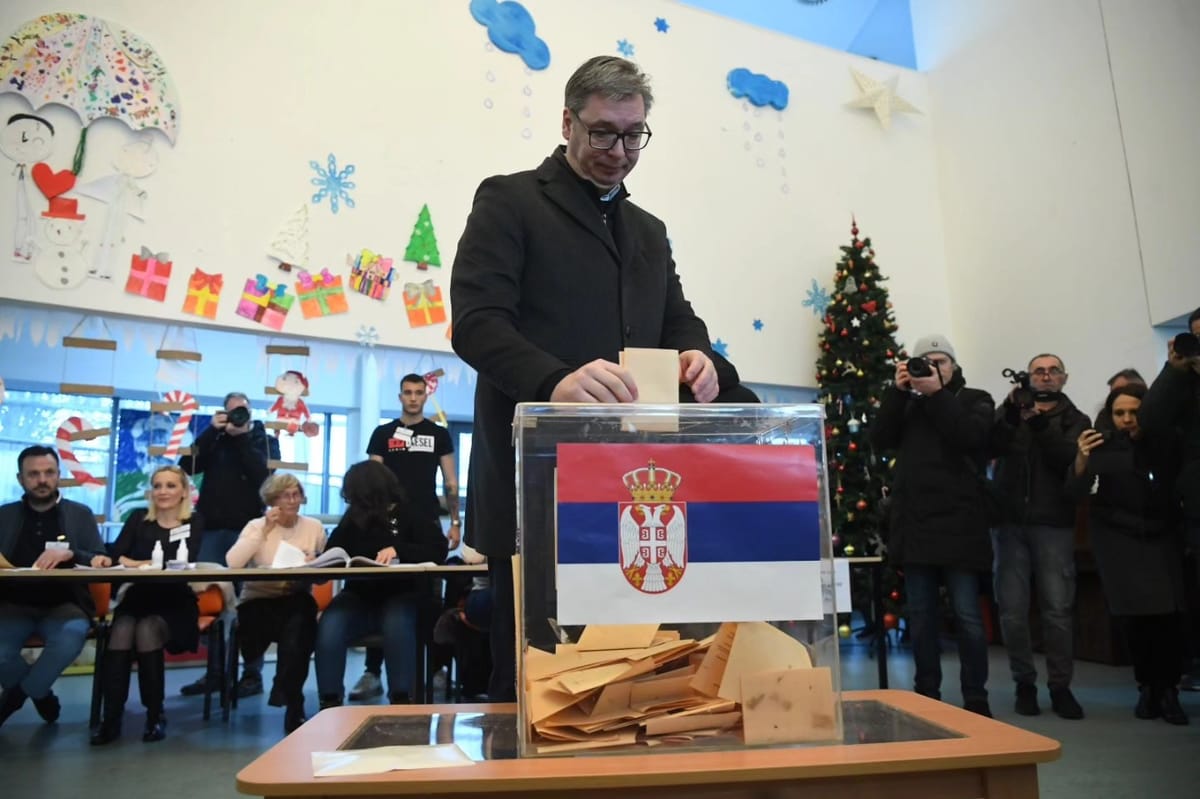
Vucic wins in Serbia with left alliance SPN second
In the Serbia national parliament election, the right-of-centre SNS (EPP)-led multiparty alliance, led by Aleksandar Vucic was leading with 46.3% on Sunday, 17 December, with 90.3% of the CeSID/Ipsos count completed.
This seemingly marks the sixth consecutive election victory for an SNS-led list, showing a 3.3% increase in vote share compared to the 2022 election, subject to official confirmation.
“This is an absolute victory which makes me extremely happy,” a jubilant Vucic said at his party’s headquarters in Belgrade. “We know what we have achieved in the previous period and how tough a period lies ahead.”
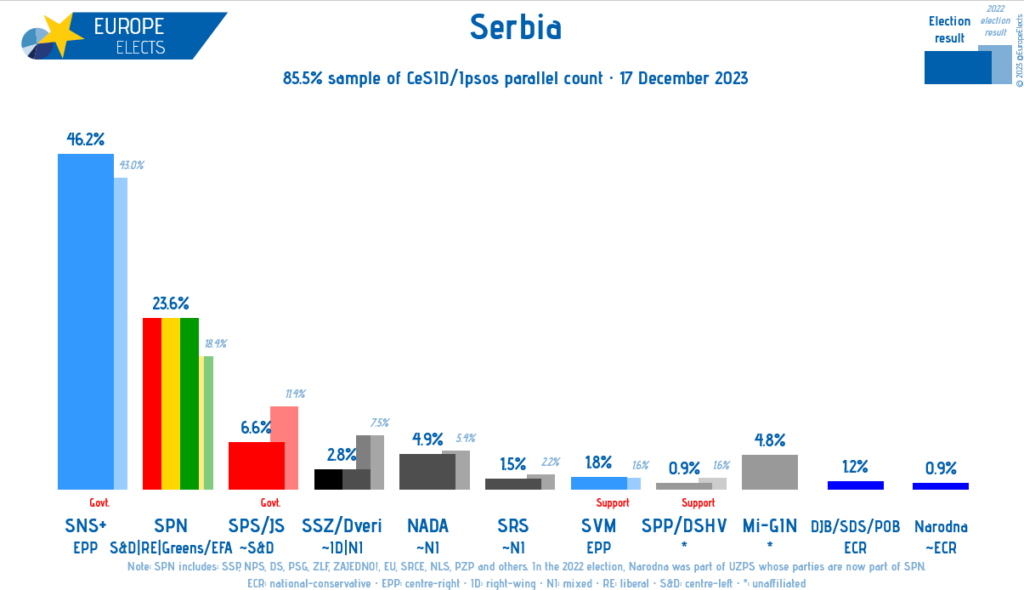
On the other hand, the left-of-centre and liberal SPN alliance’s second-placed 23.6% would be the best result for a second-largest list since 2008. The opposition group claimed vote-rigging and busing in foreign voters had taken place, an said it would dispute the vote count by “all democratic means”.
“People who do not live in Belgrade were brought in buses, vans and cars to vote as if they were citizens of Belgrade,” opposition leader Miroslav Aleksic said. Irregularities were reported by election monitors and independent media. One report said a monitoring team’s car was hit with baseball bats in a town in north Serbia.
The SPS/JS alliance, originally founded by former Serbian President Slobodan Milosevic, stood at 6.6%, maintaining its position as the third largest list for the second time in a row, with 90.3% of the votes counted. However, this would represent the worst performance for the alliance since 2007 and the second worst in its history, if validated by the Commission.
The national-conservative right-wing SSZ/Dveri (~ID|NI) alliance was at 2.8%, with 90.3% of the votes counted, potentially falling below the 3% threshold, which could lead to a loss of their national parliament representation, pending confirmation by the Republic Electoral Commission.
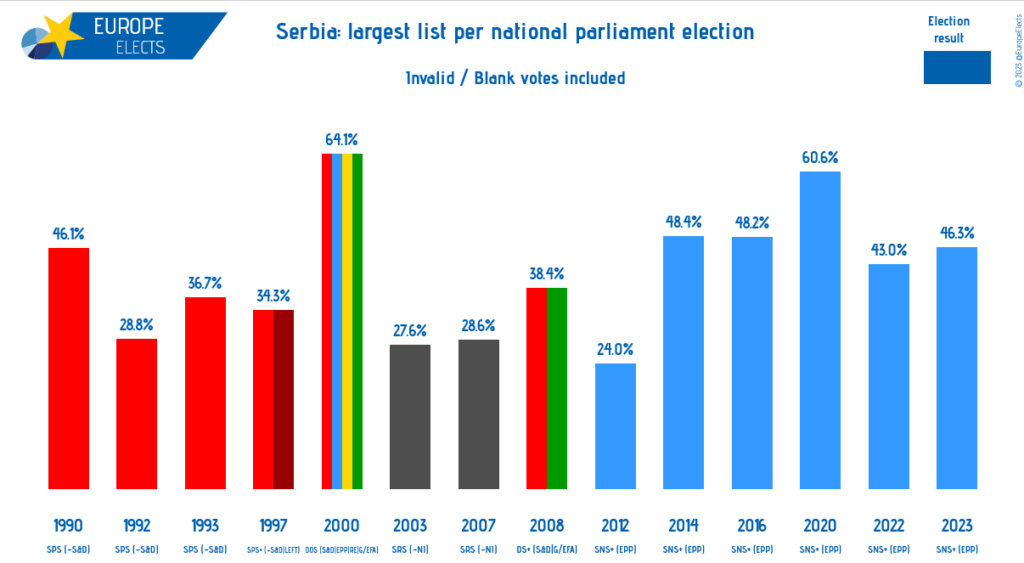
Vucic, 53, has served as the president of Serbia since 2017 and held the position of prime minister from 2014-16. Domestically, his administration has focused on economic reforms, infrastructure development, and digitalisation initiatives, leading to significant foreign investment. However opposition groups and international observers say he has suppressed the media and political dissent in Serbia.
Vucic has been instrumental in steering Serbia through its slow path towards European integration while maintaining strong relations with Russia and China, strategically positioning the country between East and West in the Balkans.
Balkan academic and observer Jasmin Mujanovic commented in a tweet that “As expected, Vucic’s ruling SNS cruises to an easy majority. Notwithstanding obvious electoral fraud, this outcome was never seriously in doubt. The SNS will now surpass Milosevic’s SPS as the longest, continuously governing party in Serbia’s post-Yugoslav history.”
Vucic called the vote only 18 months after Serbia’s last parliamentary and presidential elections, despite his party holding a comfortable parliamentary majority.


